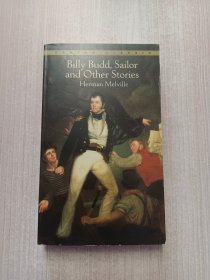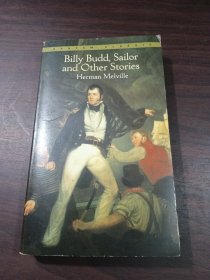
BILLY BUDD
水手比利巴德 赫尔曼·梅尔维尔
¥ 6 1.4折 ¥ 43 九五品
仅1件
湖南常德
认证卖家担保交易快速发货售后保障
作者Herman Melville 著
出版社Random House US
出版时间1982-05
版次1
装帧平装
货号70-8外
上书时间2024-08-03
- 在售商品 暂无
- 平均发货时间 11小时
- 好评率 暂无
- 店主推荐
- 最新上架
商品详情
- 品相描述:九五品
图书标准信息
- 作者 Herman Melville 著
- 出版社 Random House US
- 出版时间 1982-05
- 版次 1
- ISBN 9780553212747
- 定价 43.00元
- 装帧 平装
- 开本 32开
- 纸张 胶版纸
- 页数 306页
- 【内容简介】
- If Melville had never written Moby Dick, his place in worldliterature would be assured by his short tales. "Billy Budd,Sailor," his last work, is the masterpiece in which he delivers thefinal summation in his "quarrel with God." It is a brilliant studyof the tragic clash between social authority and individualfreedom, human justice and abstract good. Melville also exploresthis theme in "Bartelby the Scrivener," his famous story about aWall Street law clerk who takes passive resistance to a comic—andultimately disastrous—extreme; and in "Benito Cereno," his dazzlingaccount of oppression and rebellion on a nineteenth-century slaveship. Completing this collection of great tales are the eerie "TheEncantados," the beautiful, romantic "The Piazza," and Melville'schilling science fiction parable, "The Bell-Tower."
- 【作者简介】
-
Herman Melville was born in New York City in 1819. When hisfather died, he was forced to leave school and find work. Afterpassing through some minor clerical jobs, the eighteen-year-oldyoung man shipped out to sea, first on a short cargo trip, then, attwenty-one, on a three-year South Sea whaling venture. From theexperiences accumulated on this voyage would come the material forhis early books, Typee (1846) and Omoo (1847), aswell as for such masterpieces as Moby-Dick (1851),Pierre (1852), The Piazza Tales (1856) and BillyBudd, Sailor (posthumous, 1924).
Though the first two novels—popular romantic adventures—sold well,Melville's more serious writing failed to attract a large audience,perhaps because it attacked the current philosophy oftranscendentalism and its espoused "self-reliance." (As he madeclear in the savagely comic The Confidence Man, 1857),Melville thought very little of Emersonian philosophy. He spent hislater years working as a customs inspector on the New York docks,writing only poems comprising Battle-Pieces (1866). He diedin 1891, leaving BILLY BUDD, Sailor, unpublished.
点击展开
点击收起
相关推荐
— 没有更多了 —
































以下为对购买帮助不大的评价